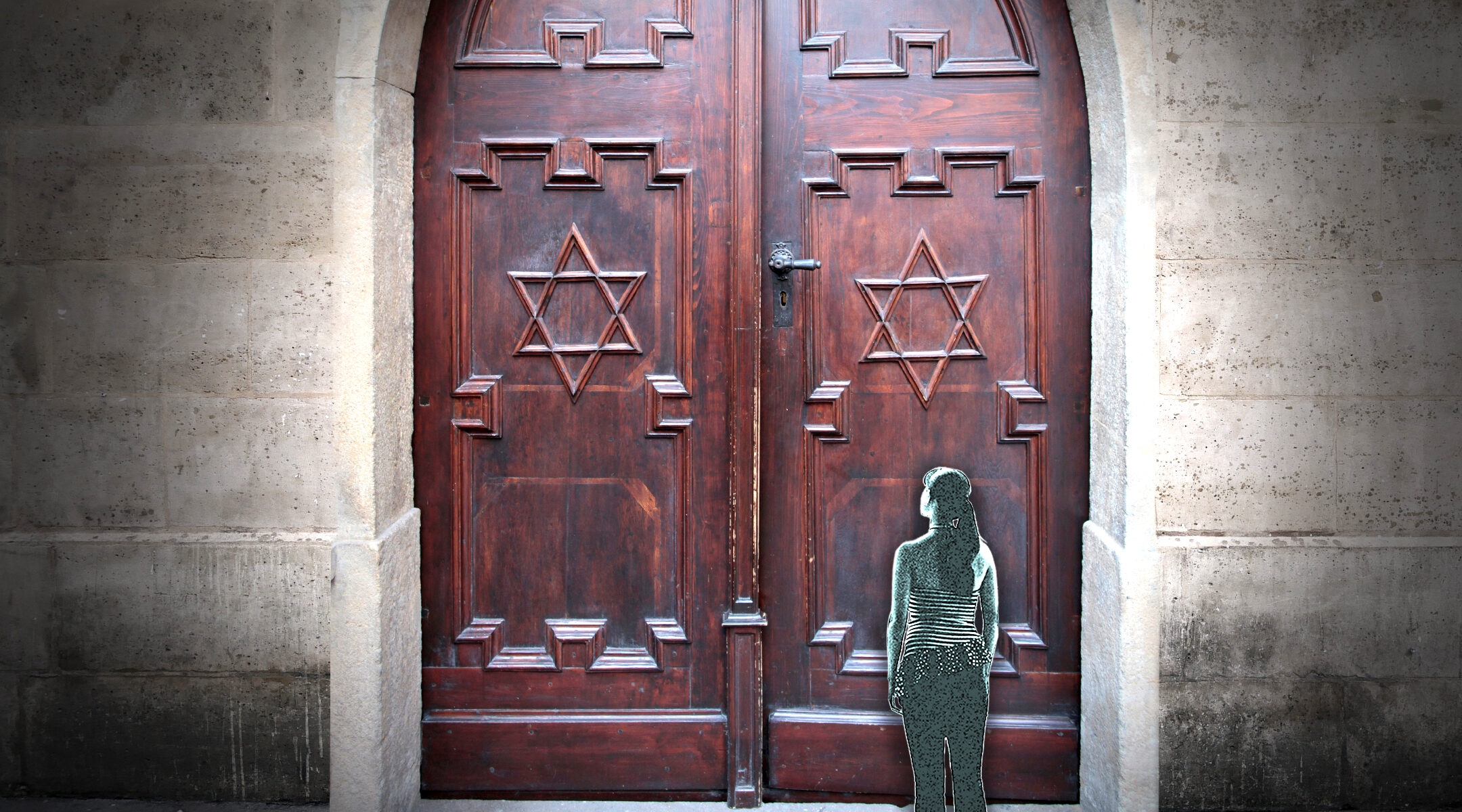(JTA) — I have been shocked lately by the number of my friends who have left synagogues because of a pattern of unkind remarks from rabbinic and volunteer leaders. A Jew-by-choice belittled. A twenty-something shamed. A professional demeaned.
Jewish Twitter is full of accounts by Jews by choice or Jews of color who have been challenged, patronized or “othered” when they show up in Jewish spaces. Essayists lament that too many synagogues don’t seem welcoming or sensitive to single parents, or don’t accommodate people with disabilities.
Saying and doing hurtful things is not just ethically wrong, it’s destructive to organizations, and has no place in the sacred communities that congregations strive to be.
As any marketer will tell you, it is far cheaper to keep a customer than to acquire a new one — and synagogues can’t afford to alienate a single congregant. With the ranks of the unaffiliated growing, according to Pew’s 2020 study, synagogue leaders need to watch what they say to keep, welcome and attract members.
The Pew study revealed that 7% of American Jews do not attend synagogue regularly because they “don’t feel welcome” while another 4% say “people treat me like I don’t really belong.” During my dozen years as a Hillel professional we invested heavily in training staff to create environments that welcomed and engaged Jewish students of all backgrounds, regardless of how they looked, loved or worshiped. My own first encounter with Hillel when I was just a high school senior ended poorly: Visiting Boston University’s Hillel, I was so put off by a comment that I didn’t apply to the school.
Of course this is a problem as old as Judaism itself.
On the first day of Rosh Hashanah we read the story of Hannah, the distraught woman who came to the Tabernacle at Shiloh to pray for a cure for infertility. Eli the Priest, seeing her pray silently — heretofore an unknown practice — accused her of being drunk. The priest said to her, “How long will you make a drunken spectacle of yourself? Sober up!”
Hannah replied, “Oh no, my lord! I am a very unhappy woman. I have drunk no wine or other strong drink… I have only been speaking all this time out of my great anguish and distress.”
“Then go in peace,” said Eli, “and may the God of Israel grant you what you have asked of Him.”
What if Hannah couldn’t muster the strength to defend herself and simply walked out of the Tabernacle — and out of Judaism? What if Eli did not have the compassion to correct himself? Would Hannah’s son, Samuel, have been raised to become a Jewish leader recognized by the three Biblical faiths as a prophet? How would Eli’s thoughtless remark have changed history?
The rabbis recognized the toxicity of insults and cited such remarks as a transgression in one of the oldest elements of the Yom Kippur service, the confessional, or Vidui. During the Vidui, worshippers strike their breasts and acknowledge that they have “smeared” others, “dibarnu dofi.” Medieval commentator Rashi says the word “dofi” means “slander” and that it derives from “casting off” — as if by definition defamation leads to alienation. One prayerbook perceptively renders the phrase as, “We have destroyed” — a reputation, a relationship, a communal bond.
Jewish literature is full of guides to proper communication and avoiding evil speech, or “lashon hara” — from the Psalmist’s admonition, “Guard your tongue from evil and your lips from speaking deceitfully,” to the Talmudic “Let the honor of your friend be as dear to you as your own,” to Rabbi Yisrael Meir Kagan’s masterwork, the “Sefer Chofetz Chaim,” to Rabbi Joseph Telushkin’s excellent book, “Words that Hurt, Words that Heal.”
But how do congregations turn wise words into action?
Linda Rich, a New York-based leadership coach who counsels synagogues and nonprofits, regards respectful communication as a core behavior for a successful congregation, and a congregation that lives the Jewish values it espouses. Discussion and disagreement are the signs of a healthy group, but in the Jewish context they should be civil and “l’shem shamayin,” for the advancement of sacred work, not for other motives.
She recommends that volunteers and staff study the principles that are fundamental to Jewish life, and sign a covenant to uphold them. When individuals fail to do so they should be reminded politely, clearly and directly that they are a valued member of the congregation, but this behavior is unacceptable. Try to be positive: Point out that they can be even more effective leaders if they watch what they say and adjust their approach. The congregation should sponsor periodic surveys or other forms of evaluation to determine how well the group is fulfilling its duties and covenants.
On Yom Kippur we reflect on our personal shortcomings but we atone as a group. We do not seek forgiveness “for the sin that I have committed through my words,” but “for the sin that we have committed through our words.” Our individual words have collective impact. The High Holidays provide a golden opportunity to rethink how those words affect others and to take steps to change as individuals and congregations.
JTA has documented Jewish history in real-time for over a century. Keep our journalism strong by joining us in supporting independent, award-winning reporting.







